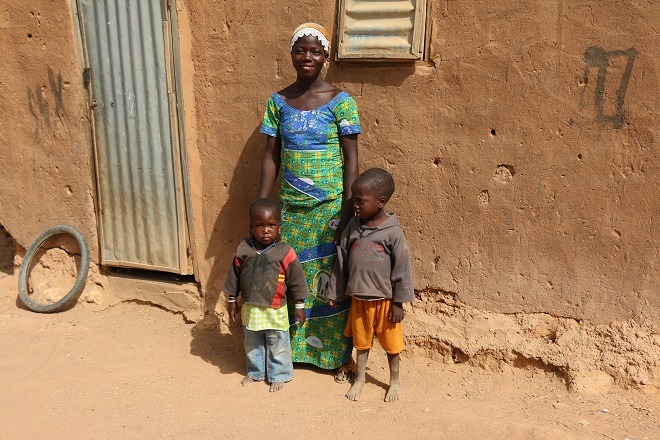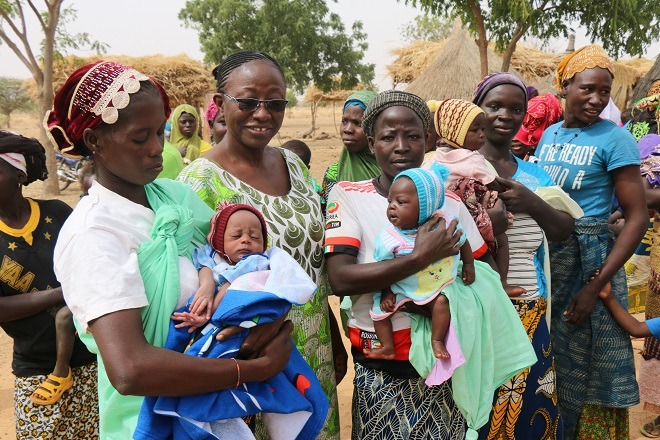
Messages of health are spreading in Koulogho village, found in the Center-North region of Burkina Faso. Abibou Ouedraogo, 26, is raising her three young children there. While all of them are healthy, her youngest child is thriving the most, thanks to recently adopted health, hygiene, and nutrition best practices.
Mothers in this and many parts of the country often don’t see the value in prenatal care and have little confidence in the recommended early childhood feeding practices. Instead, they are more likely to follow the practices they learned from their own mothers and community members.
Two years ago, only 40 percent of pregnant and lactating women in Koulogho village sought medical care. Many mothers in the village stopped exclusively breastfeeding their children before the crucial six-month period following birth and introduced solid foods too early. In the village, common baby foods, such as millet porridge, offered few nutrients.
Because of these factors, their infants and children suffered from undernutrition, leading to damaging long-term effects, like stunting. According to a UNICEF report, “Undernutrition in children under age 2 diminishes the ability of children to learn and earn throughout their lives.”
In 2015, Abibou started learning about health and nutrition from the Victory Against Malnutrition Project (ViM). This project, funded by USAID’s Office of Food for Peace and implemented by ACDI/VOCA and Save the Children, is reducing food insecurity in the Sanmatenga province of Burkina Faso by improving farmers’ incomes and household health and nutrition.
After taking part in trainings offered by ViM, Abibou became one of 18 mother leaders in her village, and even trained her own group of seven women on practices like exclusive breastfeeding, enriching baby food with legumes, and seeking care for health, nutrition, and vaccinations for newborns.

“There is a sense of family now with the women in the village. We discuss our well-being with each other.” – Abibou Ouedraogo, a Victory Against Malnutrition Project (ViM) participant
Mother leaders have had a positive impact in Koulougho village, where 70 percent of pregnant and lactating women now seek regular preventive care.
Abibou gave birth to her third child after she completed a course offered by ViM at her local health center. During the course, she learned about pre- and postnatal care, vaccinations, food supplementation, hygiene, and sanitation. Her third child is rarely ill and growing normally.
Now that her first two children also get sick less often and require fewer medical visits, Abibou has more money to invest in income-generating activities. Together, she and the other women in her village solve problems and enjoy the solidarity of the mother leaders group. Abibou plans to continue sharing and growing the knowledge she has gained from ViM.
Learn more about the Victory Against Malnutrition Project (ViM).





